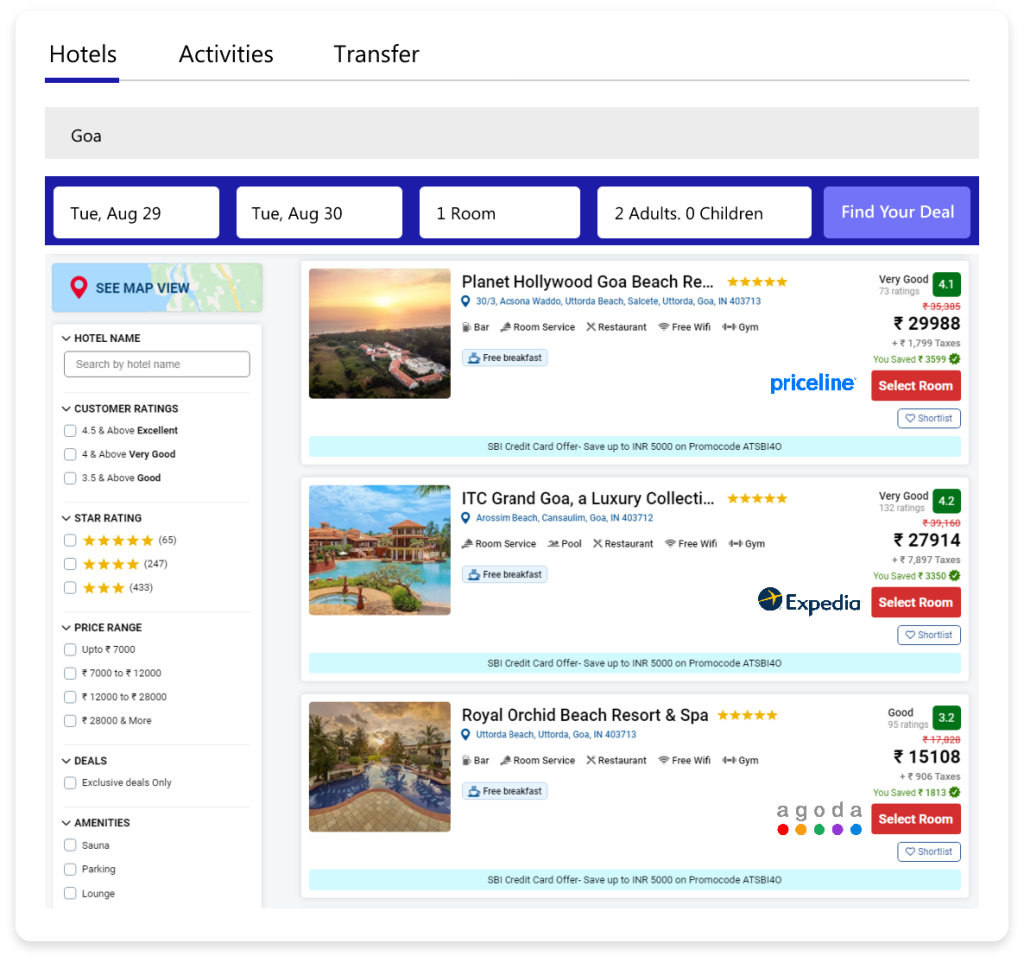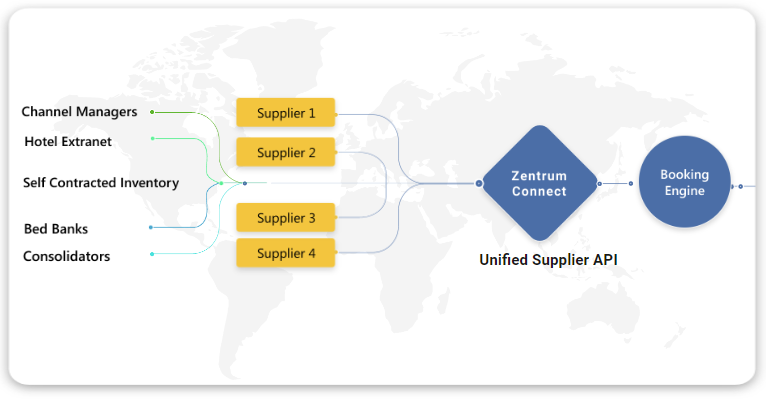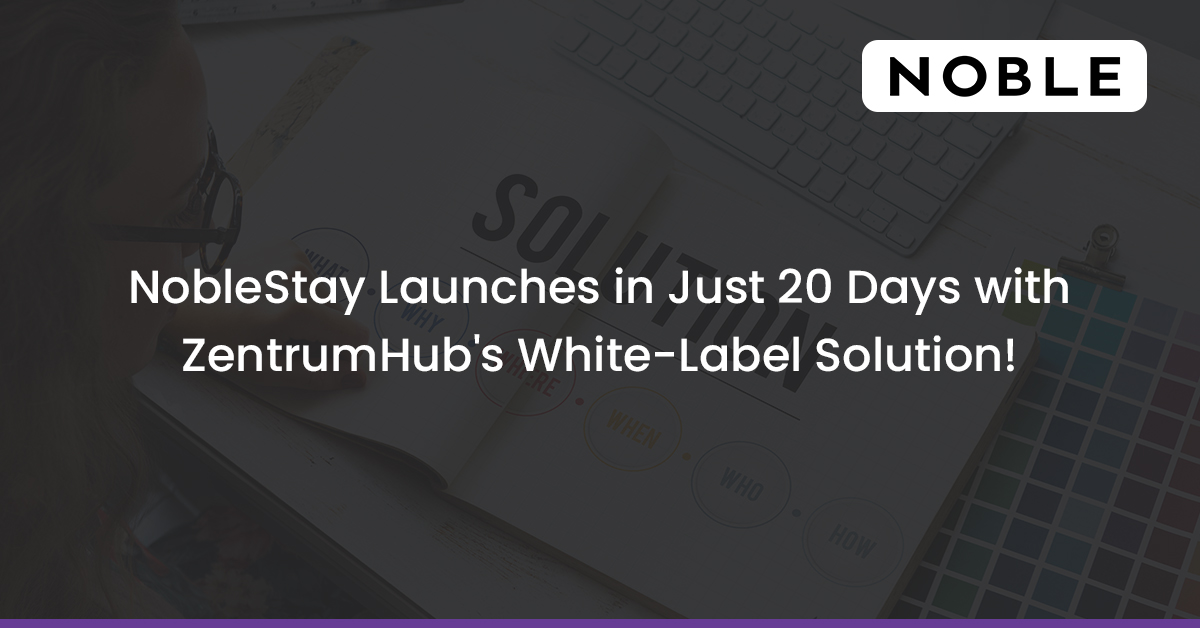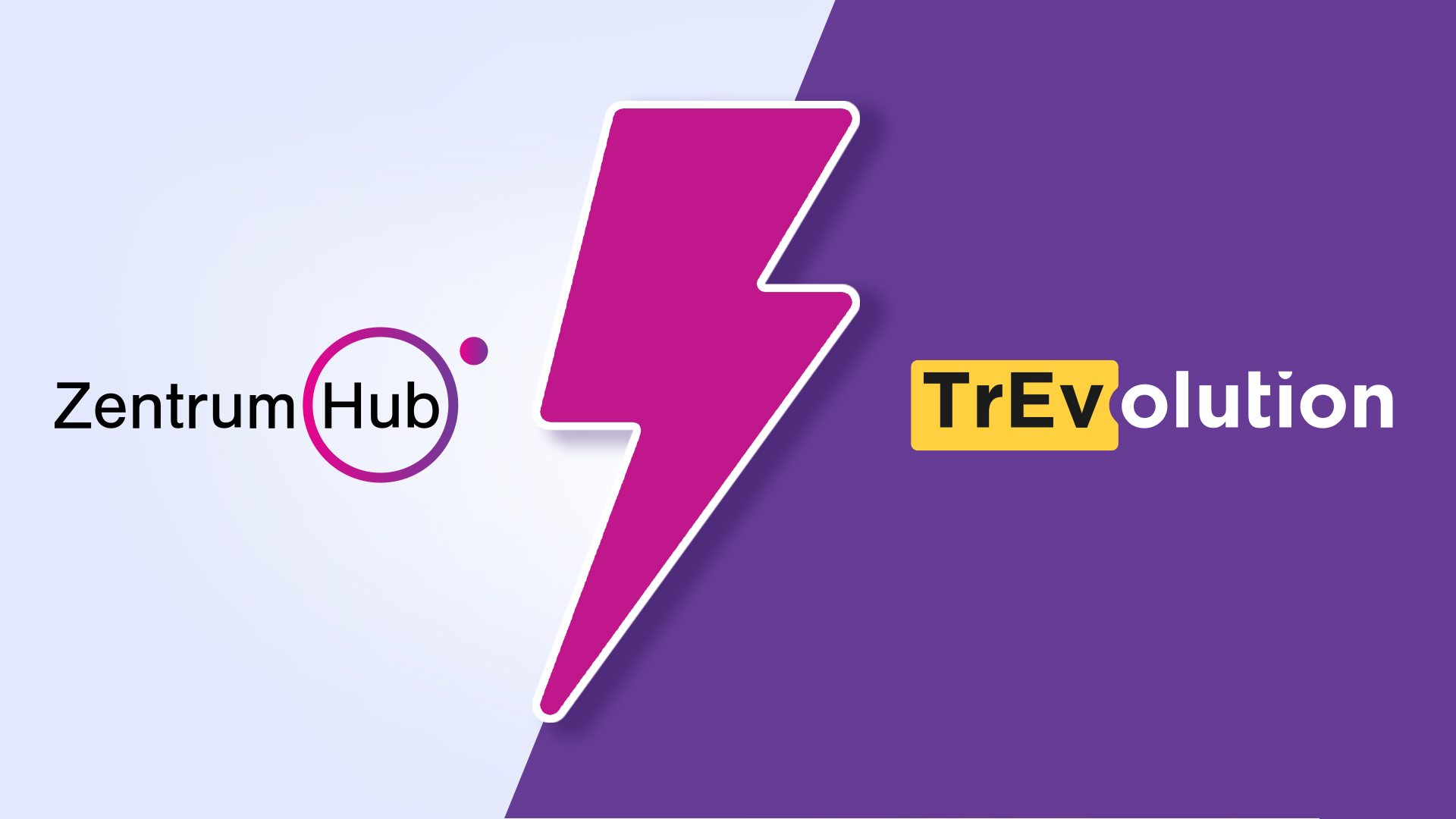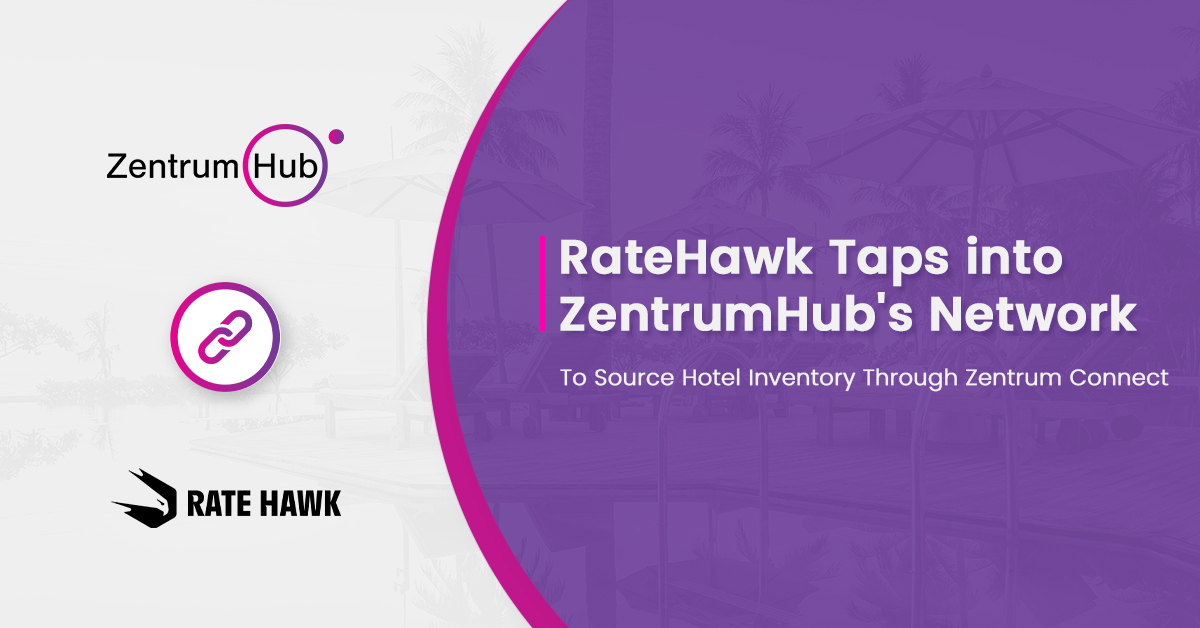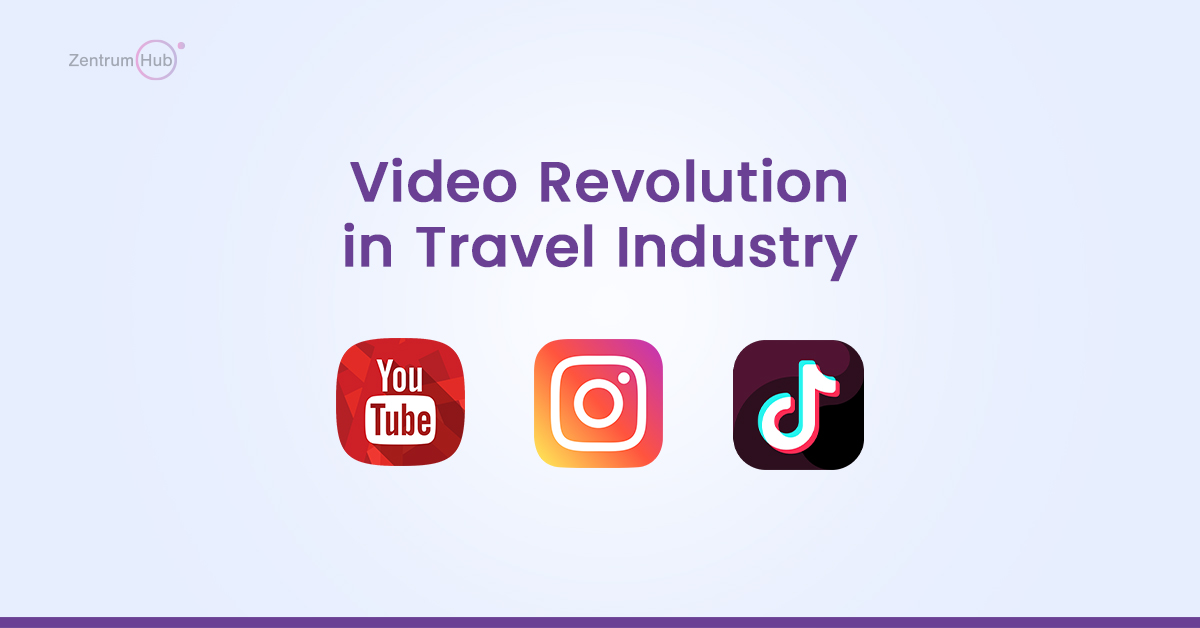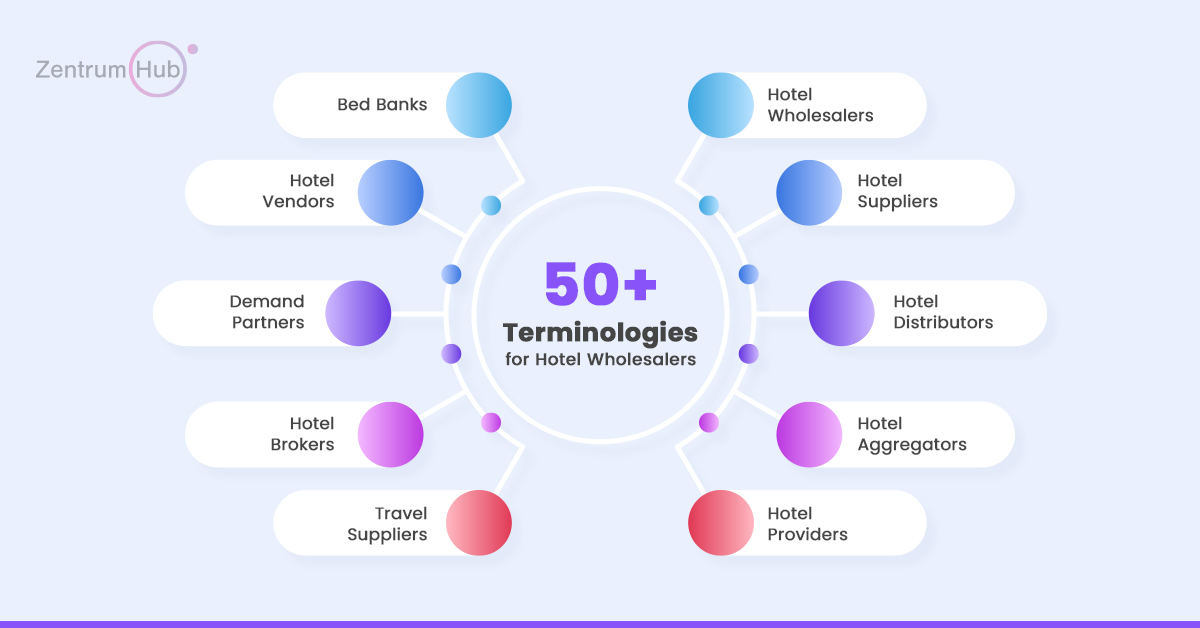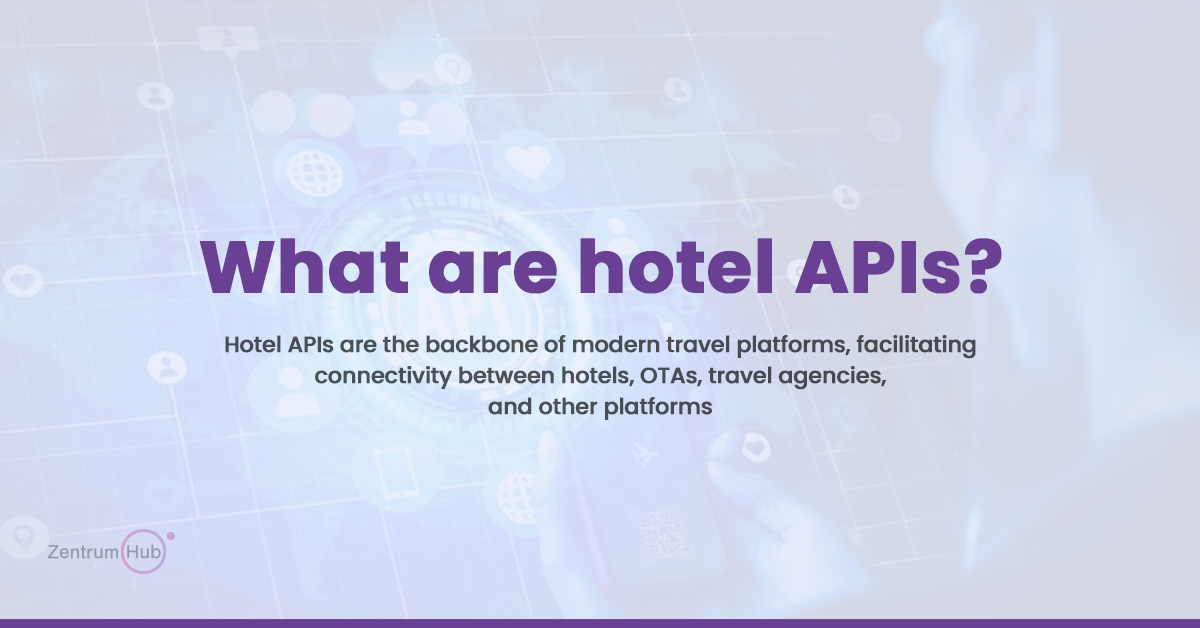How to Choose the Best Hotel API Provider? Key Features to Evaluate
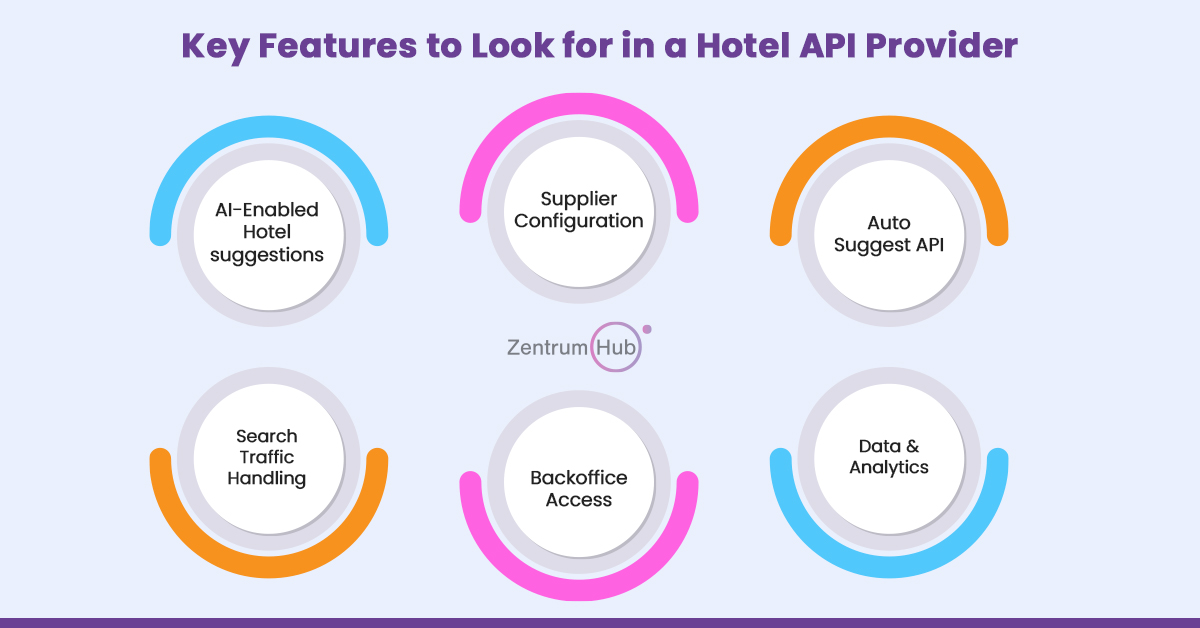
The travel industry has undergone a remarkable transformation over the past decade, with technology driving this evolution at an unprecedented pace. The rise of digital platforms has not only made travel more accessible but has also reshaped how businesses operate within the industry.
At the heart of this transformation are APIs—Application Programming Interfaces—that enable seamless communication between different software systems. For businesses in the travel sector, choosing the right hotel API provider is not just a technical decision but a strategic one. The right API can empower a company to offer a wider range of services, enhance user experience, and improve operational efficiency.
In an industry where competition is fierce and customer expectations are high, having a robust API that delivers reliable, fast, and secure connections to hotels and other service providers is crucial. Whether you’re an OTA (Online Travel Agency), a travel management company, or a startup looking to disrupt the market, your choice of hotel API provider can make or break your success.
This blog will delve into the key features you should look for when evaluating hotel API providers, ensuring that your business is well-equipped to meet the demands of the modern travel landscape.
What are Hotel APIs?
Hotel APIs are the backbone of modern travel platforms, facilitating connectivity between hotels, OTAs, travel agencies, and other platforms. By allowing these different entities to communicate and exchange information, APIs enable everything from real-time booking and availability checks to pricing updates and personalized recommendations.
The Hotel Booking API is perhaps the most critical API for any travel platform. It enables users to search for and book hotel rooms in real-time. This API connects to various hotel databases and returns information on available rooms, prices, and other details needed to complete a booking. It’s vital for ensuring that customers have access to up-to-date information, which is crucial for converting searches into bookings.
APIs are integral to the functioning of any travel platform, making it easier for businesses to manage their inventory, pricing, and customer interactions. As such, selecting a hotel API provider that excels in these areas is vital for achieving business success.
What are Key Features you should look for in a Hotel API Provider?
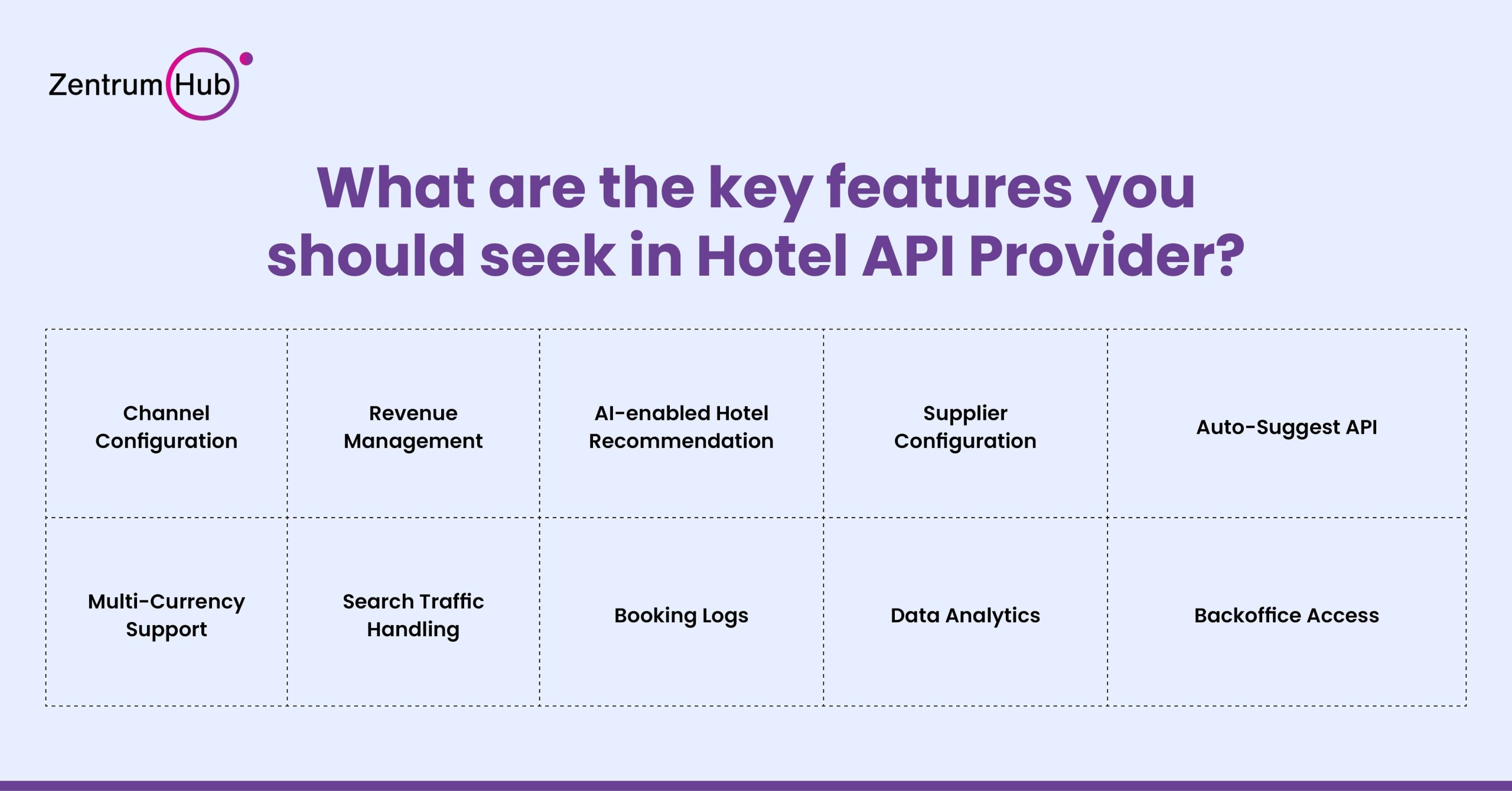
When evaluating hotel API providers, several key features can significantly impact your business’s ability to deliver exceptional service and maintain a competitive edge.
Channel Configuration: The ability to manage multiple distribution channels efficiently is crucial for any travel platform. A good hotel API provider should offer robust channel configuration options, allowing you to connect with numerous OTAs, direct booking channels, and other distribution networks seamlessly. This flexibility ensures that you can maximize your reach and revenue by connecting with the right markets at the right times.
Revenue Management Configuration: Dynamic pricing is essential in the travel industry, where demand fluctuates rapidly. Look for API providers that offer advanced revenue management features. These should include tools for implementing dynamic pricing strategies based on various parameters like occupancy rates, competitor pricing, and booking patterns. The ability to configure these settings through the API can give you a significant advantage in maximizing revenue.
AI-Enabled Hotel Recommendation: Artificial intelligence is becoming increasingly important in the travel industry. A hotel API provider that incorporates AI-driven recommendations can help enhance user experience by offering personalized suggestions based on past behavior, preferences, and other data points. This feature can lead to higher conversion rates and customer satisfaction by providing users with options that are most relevant to their needs.
Supplier Configuration: The ability to manage and configure various suppliers is another critical feature. Your API provider should offer tools to easily integrate and manage different hotel suppliers, ensuring that you have access to a broad range of inventory. This flexibility allows you to cater to diverse customer needs and preferences.
Auto Suggest API: User experience is paramount in the travel industry, and features like auto-suggest can significantly enhance this experience. An Auto Suggest API helps users quickly find the hotels, locations, or services they are looking for by providing smart suggestions as they type. This not only speeds up the search process but also helps in guiding users toward completing their bookings.
Multi-Currency Support: In today’s globalized world, multi-currency support is a must-have feature for any hotel API provider. This feature allows customers to view prices and make payments in their preferred currency, thereby enhancing their experience and increasing the likelihood of conversion. Additionally, it simplifies the management of international transactions for your business.
Search Traffic Handling: Handling high volumes of search traffic is another critical capability to look for in a hotel API provider. During peak travel seasons or promotional campaigns, your platform may experience a surge in search queries. The API should be able to manage this traffic efficiently without causing slowdowns or crashes.
Access to All Logs & Booking Logs: Transparency is essential for managing your business effectively. A reliable API provider should offer access to all logs, including booking logs, allowing you to track every transaction and interaction that occurs through the API. This feature is crucial for troubleshooting, monitoring performance, and gaining insights into user behavior.
Data & Analytics: Data is the new currency in today’s digital world, and having access to robust analytics tools through your API provider can help you make informed business decisions. Look for providers that offer comprehensive data and analytics features, allowing you to track performance, understand customer behavior, and optimize your offerings.
Backoffice Access: Finally, having back-office access through the API provider is essential for managing your operations efficiently. This feature allows your team to manage bookings, view reports, and make necessary adjustments from a centralized location, streamlining your workflow and improving overall efficiency.
Read also Travel APIs: The Cost of Integration for OTAs
How API Performance and Speed works?
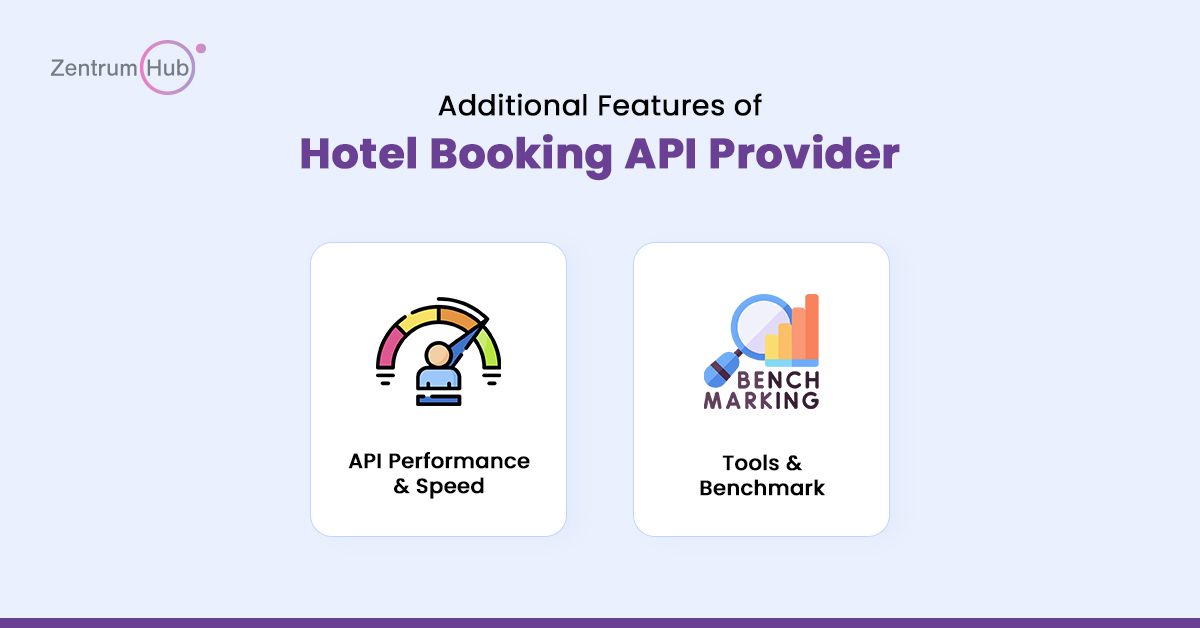
The performance and speed of an API are critical factors that directly impact the user experience on your platform. A slow or unreliable API can lead to frustrated customers, lost bookings, and ultimately, a negative reputation for your business.
Importance of Speed
API speed is crucial because it affects the response time of your platform. In the fast-paced world of online travel bookings, even a slight delay can result in lost sales. Customers expect instant results, and if your platform takes too long to load or process a booking, they are likely to abandon it in favor of a competitor.
Tools and Benchmarks
To ensure that the API you choose meets industry standards for performance, you can use various tools and benchmarks to test it. Tools like Postman and Apache JMeter allow you to simulate high volumes of traffic and measure how the API performs under load. Additionally, you can compare the results against industry benchmarks to see if the provider meets the expected levels of speed and reliability.
Providers that offer consistent performance across different traffic conditions are more likely to deliver a positive experience to your users, making them a better choice for your business.
Cost and Pricing Models
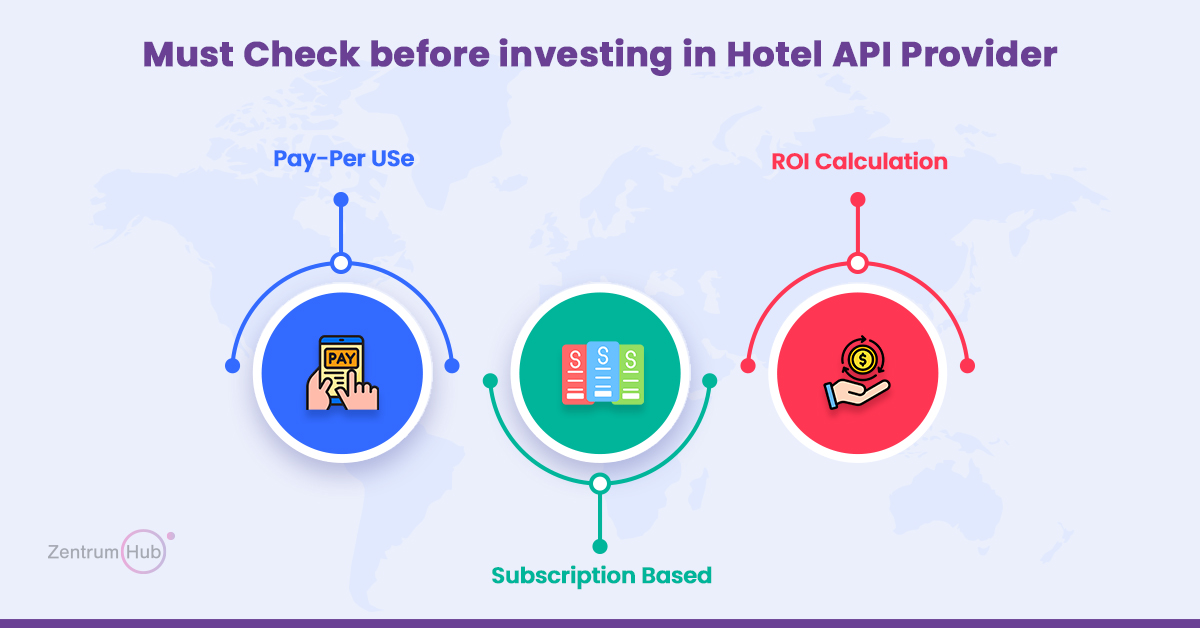
The cost of using a hotel API is a significant consideration for any business. Understanding the different pricing models available and how to calculate the return on investment (ROI) for these services is crucial for making an informed decision.
1. Pricing Models
Pay-per-Use: In this model, you pay for each API call or transaction. This model is beneficial for businesses with variable or unpredictable usage patterns, as it allows you to pay only for what you use. However, costs can add up quickly if your usage spikes unexpectedly.
Subscription-Based: A subscription-based model involves paying a fixed fee, usually monthly or annually, for a set amount of API usage. This model is ideal for businesses with steady, predictable usage, as it provides cost certainty and can be more economical in the long run.
2. ROI Calculation
Calculating the ROI for API services involves comparing the cost of the API with the benefits it brings to your business. To do this, you need to consider factors such as the increase in bookings, improvements in customer satisfaction, and operational efficiencies gained through the API. By assigning a monetary value to these benefits and comparing them to the costs, you can determine whether the investment in the API is justified.
For example, if an API helps you increase your booking conversion rate by 10%, the additional revenue generated from these bookings can be weighed against the cost of the API to determine its ROI.
Customization and Special Features
In a highly competitive market, the ability to customize and tailor services to meet the specific needs of your target audience can set you apart from competitors. Hotel API providers that offer customization options allow you to create unique offerings that cater to niche markets or specialized customer segments.
Custom Features for Booking API
Customization can be particularly beneficial for businesses targeting specific markets, such as luxury travel, eco-tourism, or business travel. For example, if your platform caters to eco-conscious travelers, you might want an API that can highlight hotels with green certifications or eco-friendly practices. By offering tailored experiences, you can attract and retain customers who are looking for something beyond the standard travel options.
Integration Challenges
Integrating a new API into your existing systems can be challenging, especially if there are compatibility issues or if the API requires significant customization. However, a good API provider will offer support and tools to help you overcome these challenges. Look for providers that offer comprehensive documentation, support services, and integration tools to make the process as smooth as possible.
Also Read Role of Hotel Booking APIs in Hotel Booking Engine?
Future Trends in Hotel APIs
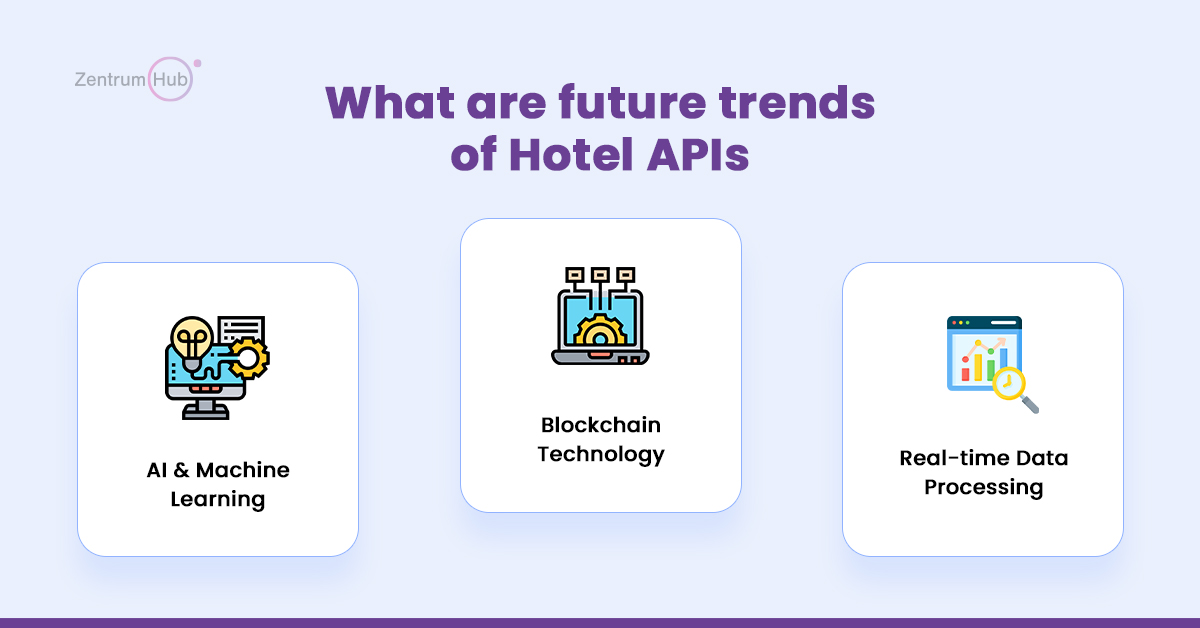
The landscape of hotel APIs is constantly evolving, driven by technological advancements and changing customer expectations.
AI and Machine Learning: The use of AI and machine learning in hotel APIs is on the rise, enabling more personalized and predictive services. These technologies can help platforms offer more relevant recommendations, optimize pricing strategies, and improve customer service.
Blockchain Technology: Blockchain is another emerging trend that could impact the future of hotel APIs. It offers enhanced security and transparency, which are becoming increasingly important in the travel industry. Blockchain can be used to securely store and transfer booking information, reducing the risk of fraud and errors.
Real-Time Data Processing: As customers demand faster and more accurate information, real-time data processing is becoming a critical feature for hotel APIs. Providers that can deliver real-time updates on availability, pricing, and other key data points will be better positioned to meet customer needs.
Predictions for the Future
Looking ahead, we can expect hotel API providers to continue integrating more advanced technologies into their offerings. This could include more sophisticated AI-driven features, increased use of blockchain for security, and greater emphasis on real-time data processing. Providers that stay ahead of these trends will be better equipped to meet the evolving needs of the travel industry.
Want to Learn More? Check Out These Hotel API Blogs
Conclusion
Choosing the right hotel API provider is a critical decision that can significantly impact your business’s success. From channel configuration and revenue management to AI-enabled recommendations and multi-currency support, the features offered by an API provider can determine how well your platform meets the needs of today’s travelers.
In this blog, we’ve explored the key features to look for in a hotel API provider, discussed the importance of API performance and speed, examined various pricing models, and considered the benefits of customization. We’ve also looked ahead at the future trends that are likely to shape the hotel API landscape.
By carefully evaluating your needs and considering the features outlined in this blog, you can choose a hotel API provider that will help you deliver exceptional service and stay competitive.
If you’re ready to take your travel platform to the next level, start by researching the top hotel API providers that offer the features we’ve discussed. Evaluate their offerings, test their performance, and consider how they can meet your unique needs. Making the right choice now can set your business up for long-term success.
FAQs : How to Choose the Best Hotel API Provider? Key Features to Evaluate
A Hotel API (Application Programming Interface) allows travel platforms to connect with hotel databases to access real-time information on availability, pricing, and booking options. It is crucial because it enables seamless integration between different travel services, improving user experience and operational efficiency.
Key features to consider include channel configuration, revenue management tools, AI-enabled recommendations, multi-currency support, search traffic handling, and robust data analytics. These features ensure that your platform can efficiently manage bookings, optimize pricing, and cater to a global audience.
Hotel API pricing models usually fall into two categories: pay-per-use and subscription-based. Pay-per-use charges you for each API call, while subscription-based models involve a fixed fee for a set amount of usage. Choosing the right model depends on your business’s usage patterns and budget.
Emerging trends include the integration of AI and machine learning for personalized recommendations, the use of blockchain technology for enhanced security and transparency, and real-time data processing to meet the increasing demand for instant, accurate information. These trends are shaping the future of hotel APIs, offering more advanced and secure services.



